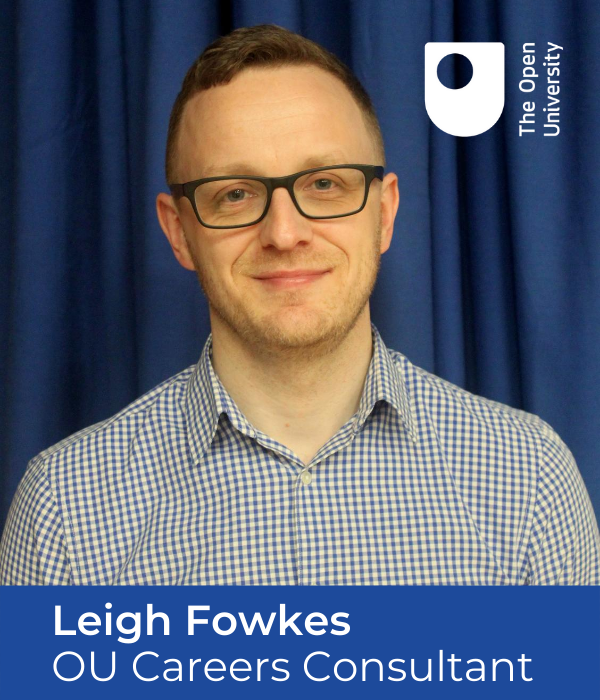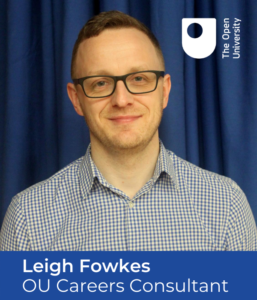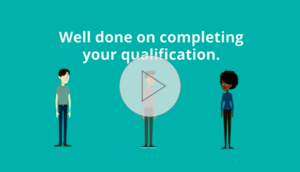- Home
- Dealing with a disappointing classification
Dealing with a disappointing classification
Posted on • Career planning, Results

What to do if you don’t get the degree result you need?
We know waiting to receive your degree result can be both an anxious and exciting time. If you receive a lower classification than you expected, you may be worried about the impact on your future career. If you haven’t yet finished your qualification but are considering what your module results mean for your study and career choices, check out Reviewing your career options after module results.
I’m Leigh, and I’m an OU Careers and Employability Consultant supporting students and alumni like you to navigate your future and work out your next steps. Here are my four practical steps on what to do next if your degree classification is lower than you hoped:
1. It may not matter: Check if you can you still take up your course/training offer.
You may have an offer on a postgraduate course or training programme that was conditional on achieving a particular classification. Common examples include masters programmes, initial teacher education, law training contracts and psychology doctoral study.
Take action: Your result may still be acceptable –contact your course provider as soon as possible and find out.
As a worst case scenario, a course provider may not be able to honour their original offer. However, they may accept a lower result, especially if you impressed them in other areas through the interview and selection process or with your relevant experience. If you had mitigating circumstances that affected your performance, they may also consider this but make sure you have the evidence you need so you can share this when requested.
2. Call the employer: What to do if you have a job offer? E.g., graduate scheme

Take action: The advice here is identical to the offer of a course or training programme. Contact the employer as soon as possible and discuss what your degree result now means for them. Your predicted degree result was not the only reason they wanted to hire you, so there’s still a chance you’ll be accepted.
Not every employer is looking for a 2:1 or above degree classification. The Institute of student employers (ISE) has seen a shift in employer practice in relation to grades and more employers are now considering a 2:2 rather than a 2:1 or above. The proportion of employers setting no minimum requirements is also growing.
3. Whatever your degree classification, learning to talk about your skills is still a priority.
This cannot be stated enough. Your degree title and classification alone do not tell an employer or course provider what you can do and why they should choose you over someone else, so you need to learn to talk about and evidence your strengths and achievements.
“A third of employers reported that their skill needs had changed because of Covid-19. What we see in 2022 is an increased focus on soft skills with employers looking for skills such as resilience, self-motivation and adaptability in their graduate hires”.
ISE Student Development Survey 2022
To help move you forward think about these three questions and use the resources to make sure you know your strengths and can talk about them in words that employers take notice of.
- What skills do you have? Read our blog: Love your skills…… unleash your potential.
- How should you present yourself in CVs, cover letters, interviews and assessment centres? Read our blog 6 quick guides to achieving your goals.
- What have you learned through your OU studies? Personal development planning tool FutureYOU is a structured framework for tracking progress to potential study, career and personal development options and goals. You may have access under the ‘Plan’ or ‘Succeed’ tab of the Study Home page for your subject area (if not you can use the Open Qualification version).
4. Self-care: Allow yourself some time, space to clear your head and emotions
If you don’t achieve the degree classification you expected or needed, it is perfectly natural for this to impact you emotionally. Initial bad news can make it hard to think about any practical implications. Self-care in this early stage is vital to help you deal with stress, panic or any other impact on your mental wellbeing. The OU offers mental health support and advice, so please do access our help if you need to. Good self-care helps cope with any feelings of anxiety about the future. This includes:
- Eating and sleeping well.
- Taking time to do still do the things you enjoy.
- Talking about how you feel.
- Keeping in touch with your circle of friends and family.
OU Careers and Employability Services

Leigh Fowkes is an OU Careers and Employability Consultant specialised in supporting WELS students. Leigh helps students navigate their futures, figure out their goals and build their confidence and skills to achieve them through one-to-one careers consultations and by designing career learning events and resources for the OU. Explore the rest of Careers Stories page for more articles from the Careers and Employability Services team.
